IMU is a multi-disciplinary unit engaged in research and development activities in Information Technology Management.
Our research is in the following areas:
- systems that augment human intelligence with advanced data analytics
- automated machine learning, generative and neuro-symbolic AI approaches with the aim to lower the skill threshold for people and companies to exploit AI benefits
- mechanisms that support the monitoring and management of computational resources across the cognitive cloud continuum in a secure way
- blockchain-based transparent information exchange across interoperable data spaces.
Since its establishment IMU contributed actively in sixty-two (62) research and technology development projects:
- Fifty (50) projects were completed during the 1997-2023 period
- Twelve (12) projects are active during the 2024-2027 period
The total funding of IMU since 1997 exceeds 18,5 million euros.
Research Areas
Research in IMU addresses the whole lifecycle from data analysis to computation to decision.
Our work falls along three strands: Analyse, Compute, Decide.
Analyse: From Data To Insight
We aim to go from data to insight by uncovering hidden patterns, combining information and discovering useful knowledge from the abundance of data available at all levels of human activity (e.g. from mobile apps and wearable devices at the personal level, from industrial sensors at the factory shop floor, from water or transport sensors at the smart city level and online communities at the societal level).
Our research topics in the Analyse phase include:
- Data and knowledge discovery, sharing and exchange
- Machine learning and prescriptive data analytics
- Privacy preserving and compliance technologies
- Data harmonization and semantic interoperability
- Interoperable data spaces and secure data exchanges
Compute: From Cloud To Edge
We address research issues that are generated by the availability of computational resources like the issue of context-aware resource allocation across private and public clouds, the exploitation of edge devices for processing computational tasks, the need to provide low latency decisions on live data and the highly secure treatment of information across the computing continuum.
Our research topics in the Compute phase include:
- Cloud service modeling and management
- Resource allocation in hybrid environments
- Real-time event-driven service management
- Security and privacy in cloud environments
- Context awareness and situation management
Decide: From Insights to Intelligence
Our research aims to support intelligent decisions by explicitly addressing the uncertainty inherent in the current digital age (e.g. with methods like agentic AI, multiple criteria, fuzzy and linguistic preference modelling), by developing methods of collective intelligence that merge human and automated agents and using advanced decision methods that proactively recommend actions which avoid undesired situations and/or exploit new opportunities.
Our research topics in the Decide phase include:
- Agentic approaches and generative AI for decision support
- Mathematical programming, simulation and optimization
- Multiple Criteria Decision Making
- Personalization and recommender systems
- Information aggregation and prediction markets
Application Domains
Factories
Of The Future
Specific topics include:
- Smart manufacturing
- Supply chain management
- Predictive maintenance
- Quality management
Electronic
Governance
Specific topics include:
- E-participation and e-consultation
- Citizen-centric services
- Policy modelling
- Citizen engagement
Digital Health And Well-Being
Specific topics include:
- Innovative healthcare
- Mobile health management
- Personalised nutrition
- Secure e-health data exchange
Digital
Innovation
Specific topics include:
- E-learning and knowledge management
- Idea management
- Open innovation
- Social creativity support
Sustainable
And Green Economy
Specific topics include:
- Smart and green mobility
- Digital solutions for water management
- ICT-enabled energy efficiency
- Behavioral change support

